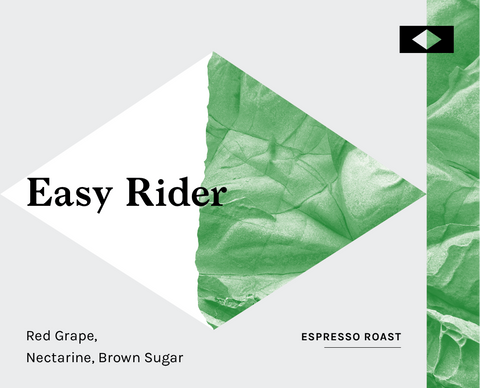Jigesa Natural, Ethiopia - Espresso Roast
Mango, Blueberry, Vanilla
$25.00
This variant is currently sold out
Jigesa (pronounced “Jee-geh-sa”) is a privately-owned washing station that is located in the Shakisso woreda (administrative district) in Ethiopia’s Guji zone. It is named after the kebele (local village) of Jigesa. It was the first of 26 washing stations established by Testi Coffee, a family-owned company founded by Mr Faysel A. Yonis.
Sitting at 1,851m above sea level, Jigesa produces exceptional washed and natural processed lots. The washing station was established in 2014, and currently employs between 250-260 seasonal workers—around 200 of them are women who hand-sort parchment, while the remaining 50 work at the onsite dry mill. During harvest, freshly picked coffee cherry is delivered daily by some 500 independent outgrowers from the nearby kebele of Dambi Uddo and collection points in Wese and Suke.
The majority of the families that contribute to this lot farm organically on tiny plots of land, averaging just two to five hectares in size. Coffee is their main cash crop and grows alongside food crops of corn, grain and bananas, under the shade of native Birbira, Wanza, and Acacia trees. The average elevation of the farms in this region is very high – around 1,800–2,050m above sea level – and this, combined region’s cool temperatures (which range between 15-20°C) is ideal for the slow ripening of coffee cherries, leading to denser beans and a sweeter, more complex cup profile.
VARIETY
This coffee is mostly made up of local landrace varieties Kurume and Wolisho.
For many years, most Ethiopian coffees have been described as being a mix of cultivated and wild varieties, referred to as “heirloom varieties.” This is a term that is all-encompassing and used by many actors in the coffee industry to generally categorise Ethiopian coffee varieties that are from native forest origins. Whilst “heirloom” describes many of the varieties found in Ethiopia, it is also a bit simplistic and does not acknowledge the varieties that are already locally recognised and purposely cultivated, or those that have been specifically developed and widely distributed by the Jimma Agricultural Research Centre (JARC).
Sidama is home to many landrace varieties that were originally selected from the forest and have been propagated successfully for decades. There are five popular varieties that are named after indigenous trees in the area— Bedessa, Kurume, Mique, Sawe and Wolisho. There is little documentation on the history of these varieties, and it is hard to know if they represent a single plant or a wider group of varieties; however, it is widely accepted that they play a major role in the quality and floral flavour profile of the coffee from this region. JARC varieties were developed using “mother trees” from Ethiopia’s coffee forests, and are now grown for disease and pest resistance, as well as exceptional cup profile, and are released by number. For example, 74110, 74112 and 74116 are all widely propagated in the Sidama growing region.
PROCESSING
This coffee was processed using the natural method; a complex process requiring a high level of attention to detail in order to be done well. Ethiopian coffee has been processed this way by generations of farmers who have mastered the art of the natural method through centuries of tradition and experience.
Testi Coffee ensures that a great deal of care is taken in the processing and drying of their naturals, and they aim for all of their exportable coffee to be specialty quality grade. This coffee is classified as Grade 1, indicating that a lot of effort has been put into the selection, grading and drying to ensure the very highest quality coffee is produced.
Each day, carefully hand-picked coffee cherries are delivered to the wet mill and are meticulously hand-sorted prior to processing to remove unripe, overripe, or damaged fruit, in order to enhance the quality and sweetness of the cup.






















